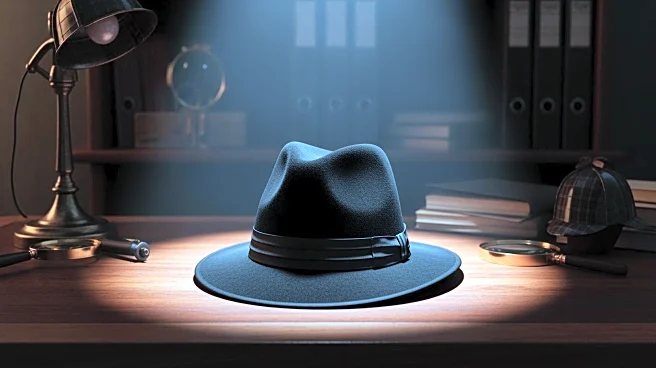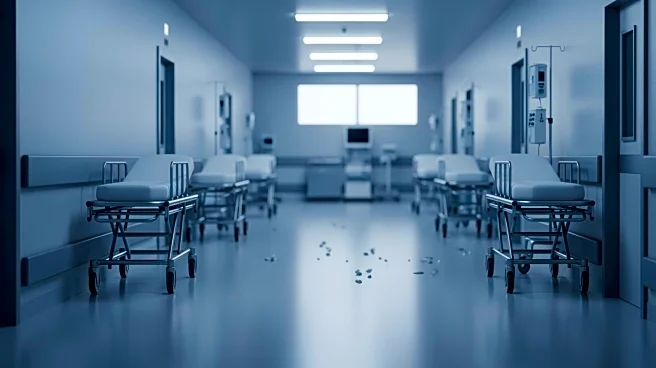What's Happening?
David Harbour, known for his role in 'Stranger Things,' has undergone a significant transformation for his upcoming role in the crime thriller 'Evil Genius.' Filming in New Jersey, Harbour was seen wearing
a fat suit, complemented by a blue button-down, overalls, and a tan jacket. The film, directed by Courteney Cox, is based on the true story of Brian Wells, the 'Pizza Bomber,' who infamously robbed a bank with an explosive device around his neck in 2003. Harbour's transformation is not new; he previously lost 80 pounds for his role in 'Stranger Things' through intermittent fasting and intense workouts. Despite the physical demands, Harbour has stated he would prefer using prosthetics in the future due to the extreme nature of such transformations.
Why It's Important?
Harbour's transformation highlights the lengths actors go to for authenticity in their roles, impacting the film industry by setting high standards for character portrayal. This dedication can influence casting decisions and audience expectations, potentially affecting box office success. Harbour's choice to use prosthetics in future roles may also reflect a shift in industry practices, prioritizing actor health and well-being over extreme physical changes. The film itself, based on a true crime story, could attract significant attention, contributing to discussions on crime and justice in the U.S.
What's Next?
As 'Evil Genius' progresses, anticipation builds around its release, with potential reactions from audiences and critics regarding Harbour's portrayal and the film's handling of real-life events. The film's success could influence Harbour's future roles and choices in the industry, possibly encouraging other actors to consider similar transformations or alternative methods like prosthetics. The film's reception may also spark renewed interest in the true story of Brian Wells, leading to discussions on crime prevention and law enforcement tactics.
Beyond the Headlines
Harbour's transformation for 'Evil Genius' raises ethical questions about the physical demands placed on actors and the industry's responsibility to ensure their health. The use of prosthetics as a viable alternative could lead to broader acceptance and innovation in film production, potentially reducing the pressure on actors to undergo extreme physical changes. Additionally, the film's focus on a real crime story may contribute to cultural conversations about the portrayal of crime in media and its impact on public perception.










